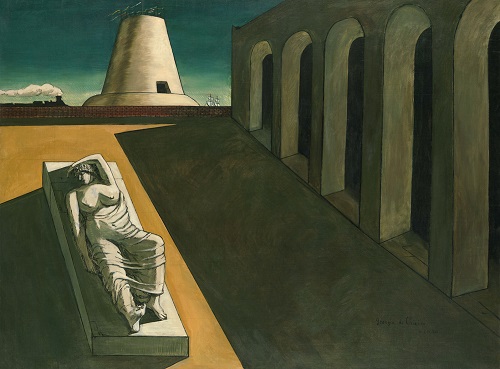

ROUNDTABLE ON 4/30 AT 2:30PM EST ZOOM LINK TBA
Metaphysics Saturday 2:30 PM EST 30 April 2022
Physics being the study of the fundamental properties of Nature, as the name implies, metaphysics investigates the nature of Nature, the what-must-therefore-be-the-case of those discoverable physical properties. For centuries, either explicitly or implicitly, metaphysics created the background and organizing principles for scientific research. But as the 20th century progressed there arose a number of challenges to this position.
The epistemic turn laid down by the quantum theory’s Copenhagen interpretation places our knowledge about Nature, in the sense of what we can know about it, above what it is “in itself.” Nearly contemporaneously, the famous “linguistic turn” heralded by the works of Wittgenstein and the ordinary language philosophers, urged “remaining quiet” about Nature beyond the acknowledged limits of what can be said about it. And more recently, on the heels of what has been referred to as the cognitive turn in psychology, philosophers like Richard Rorty focus on the modes of cognition and what to make of them (pragmatism redux) while the notion of Nature in itself is let go of.
Today, in response to these skeptical trends, we see a revival of metaphysics, only now with a refined appreciation of how our empirical access to it relates to how Nature presents itself. The notion of an “experimental metaphysics” is no longer considered oxymoronic: some empirical research in quantum physics now offers up evidence in favor of one metaphysical view over another. Meanwhile, within perceptual neuroscience, the analysis of ambiguous stimuli is beginning to inform notions of what consciousness qua natural phenomenon could mean for the nature of Nature itself.
This roundtable will scrutinize the ways in which we engage with Nature, and how the divergence of perspectives that result, some apparently strongly paradoxical, may yet be reconciled by a metaphysics that is always seeking to rise to this challenge.
This roundtable will also be streamed live and can be watched on Youtube (youtube.com/helixcenter) or on our website (helixcenter.org/videos)

he Participants
Harald Atmanspacher, PhD, is a senior scientist and staff member at Collegium Helveticum, University of Zurich and ETH Zurich, since 2007. After his PhD in physics at Munich University (1986), he worked as a research scientist at the Max-Planck-Institute for Extraterrestrial Physics at Garching until 1998. Then he served as head of the theory group at the Institute for Frontier Areas of Psychology at Freiburg until 2013. His fields of research are the theory of complex systems, conceptual and theoretical aspects of (algebraic) quantum theory, and mind-matter relations from interdisciplinary perspectives. He is the president of the Society for Mind-Matter Research and editor-in-chief of the interdisciplinary international journal Mind and Matter. For more details see collegium.ethz.ch/en/about-us/staff/pd-dr-harald-atmanspacher/.
Elizabeth Barnes is Professor of Philosophy at the University of Virginia. Her research interests are divided between metaphysics, social philosophy, feminist philosophy, and ethics. She’s particularly interested in the places where these topics overlap. She’s written a book on disability (The Minority Body), and is currently writing a book about the nature of health. Lately, she’s also been thinking a lot about the metaphysics of social structures.Hans Halvorson is the Stuart Professor of Philosophy at Princeton University. He has written extensively on the foundations of quantum physics, philosophy of science, and the relationship between science and theology, with articles appearing in the Journal of Mathematical Physics, Physical Review, and The British Journal for Philosophy of Science, among others. Halvorson has received a Mellon Foundation New Directions Fellowship, the Cushing Memorial Prize in the History and Philosophy of Physics, Best Article of the Year by a Recent Ph.D. (Philosophy of Science Association, 2001), and Ten Best Philosophy Articles of the Year (The Philosopher’s Annual, both 2001 and 2002).
Gregg Jaeger (PhD – Boston U; BSc, Math, Physics, Philosophy – U. Wisconsin-Madison) is a professor of Natural Sciences and Mathematics at Boston University. After postdoctoral work in the history of science (Dibner Institute, MIT) and experimental quantum-optical physics (National Institute of Science and Technology), he assumed his current, interdisciplinary professorship in 2006. He was awarded a Kavli Fellowship in 2008 for his work on quantum computing (holding two fundamental patents) and co-edited Philosophy of Quantum Information and Entanglement (Cambridge 2010). He is the author of the monographs Quantum Information (Springer 2007), Entanglement, Information, and the Interpretation of Quantum Mechanics (Springer 2009), and Quantum Objects (Springer 2014). Most recently, he co-authored Quantum Metrology, Imaging, and Communication (Springer 2017) and co-edited Quantum Arrangements (Springer 2021). His current work focuses on the ontological status of elementary particles in quantum field theory
Arkady Plotnitsky is a distinguished professor of Literature, Theory and Cultural Studies Program, and Philosophy and Literature program at Purdue University. He has published nine books, several edited or co-edited collections, and about two hundred articles on continental philosophy, Romantic and modernist literature, the philosophy of mathematics and physics, and the relationships among literature, philosophy, and science. His most recent book is Reality Without Realism: Matter, Thought, and Technology in Quantum Physics(Springer/Nature 2021). His next book Logos and Alogon: The Thinkable and The Unthinkable in Mathematics, from the Pythagoreans to the Moderns is forthcoming from Springer/Nature next year.
